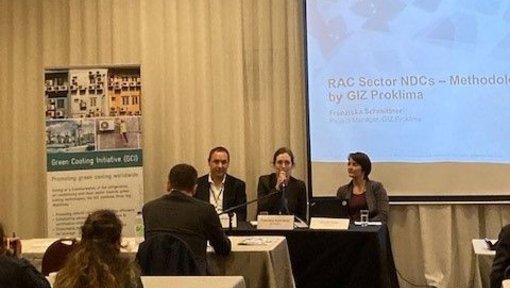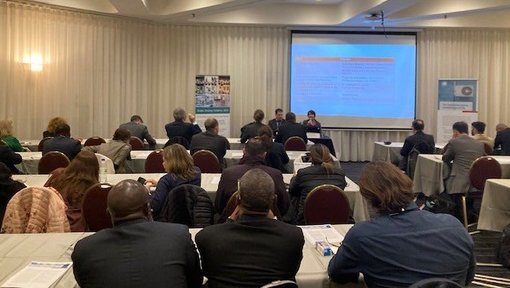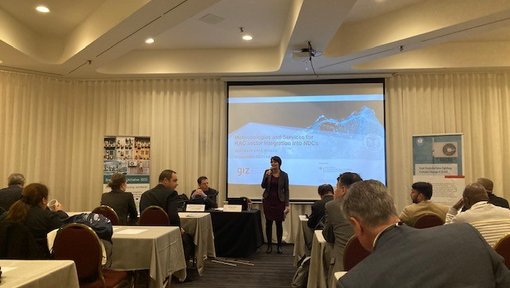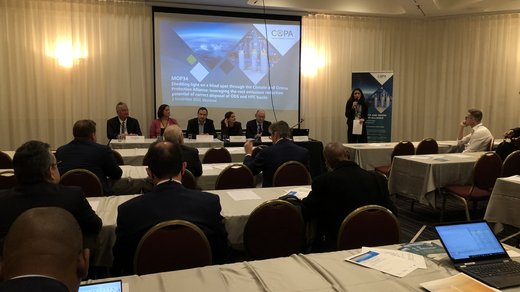Considering the importance and significant mitigation potential of the refrigeration and air conditioning (RAC) sector for more ambitious and enhanced NDCs, this side event provided guidance on how to appropriately cover the cooling sector in a NDC. Furthermore, it addressed the question how the ambition of cooling sector targets can be increased once the NDC is updated.
Step by Step to more ambitious NDCs
“More than half of the countries that developed an updated NDC have included the cooling sector and HFCs in the scope of gases covered. However, most NDCs lack concrete actions and implementation strategies for the RAC sector”,
said Franziska Schmittner, GIZ Proklima, in her presentation. Her project Cool Contributions Fighting Climate Change (C4 II) provides technical assistance in the preparation and application of best practices related to RAC-specific NDC strategies, National Cooling Action Plans, RAC greenhouse gas inventories, national greenhouse gas inventories, templates for RAC policies and measures aiming at climate mitigation in the RAC sector. For more information have a look at the NDC4 Call for Proposals.
A step-by-step guidance for policymakers can be found in the brand-new publication “Raising ambition in NDCs through holistic mitigation approaches in the cooling sector” that was presented by Philipp Denzinger, GIZ Proklima. A benchmarking tool complements the step-by-step guidance. It enables decision-makers to do a self-analysis of the cooling sector-related measures included in the current NDC of a country or future updated NDCs.
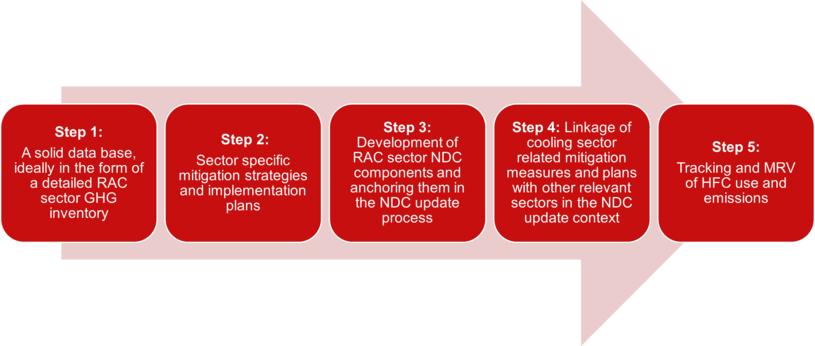
Cooling targets in practice: examples from the MENA region
The next speaker, Dr. Andreas Hermelink of the Cool Up programme, invited the participants to a virtual journey to the MENA region. He started with startling figures:
“The MENA region is exceptionally vulnerable to the impacts of climate change. It is currently warming at double the global average and predicted to be 4⁰C warmer by mid-century. Due in large part to extremely high and rising temperatures as well as a growing population, the region is slated to face a 50% increase in energy demand by 2040”.
These numbers underlined once again the importance of climate action in all sectors, including the cooling sector. Dr. Hermelink continued by explaining to what extend Lebanon, Jordan, Turkiye and Egypt have integrated RAC into the NDCs.
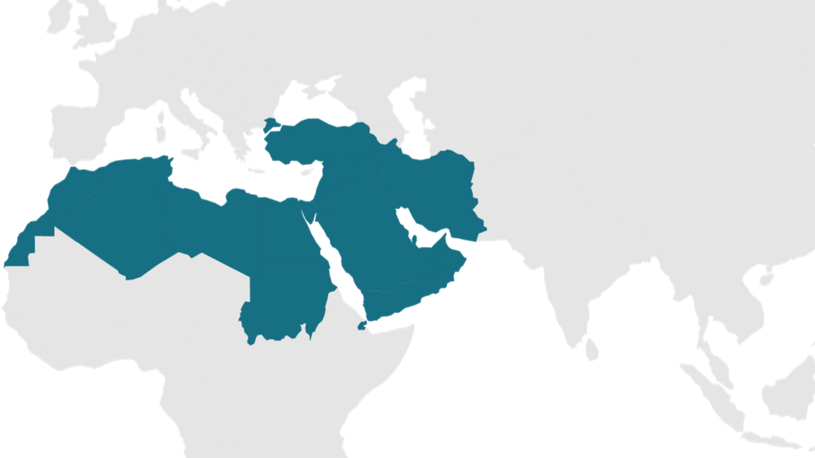
Spotlight: ATMOSphere reports
After a lively Q&A session, the side event concluded with a spotlight by Thomas Trevisan on the latest reports by ATMOsphere:

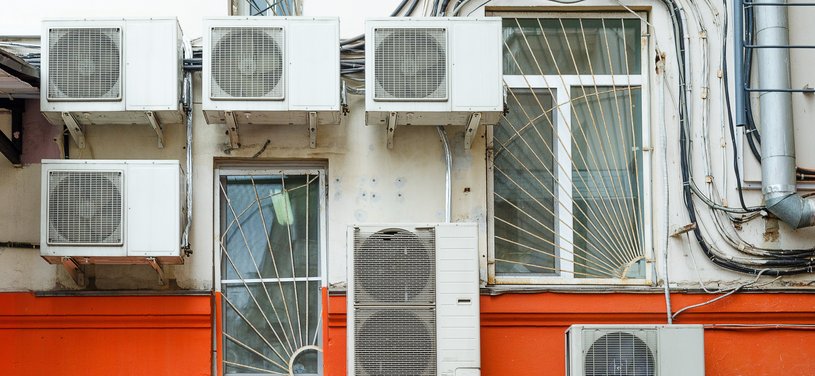 Image: Shutterstock
Image: Shutterstock